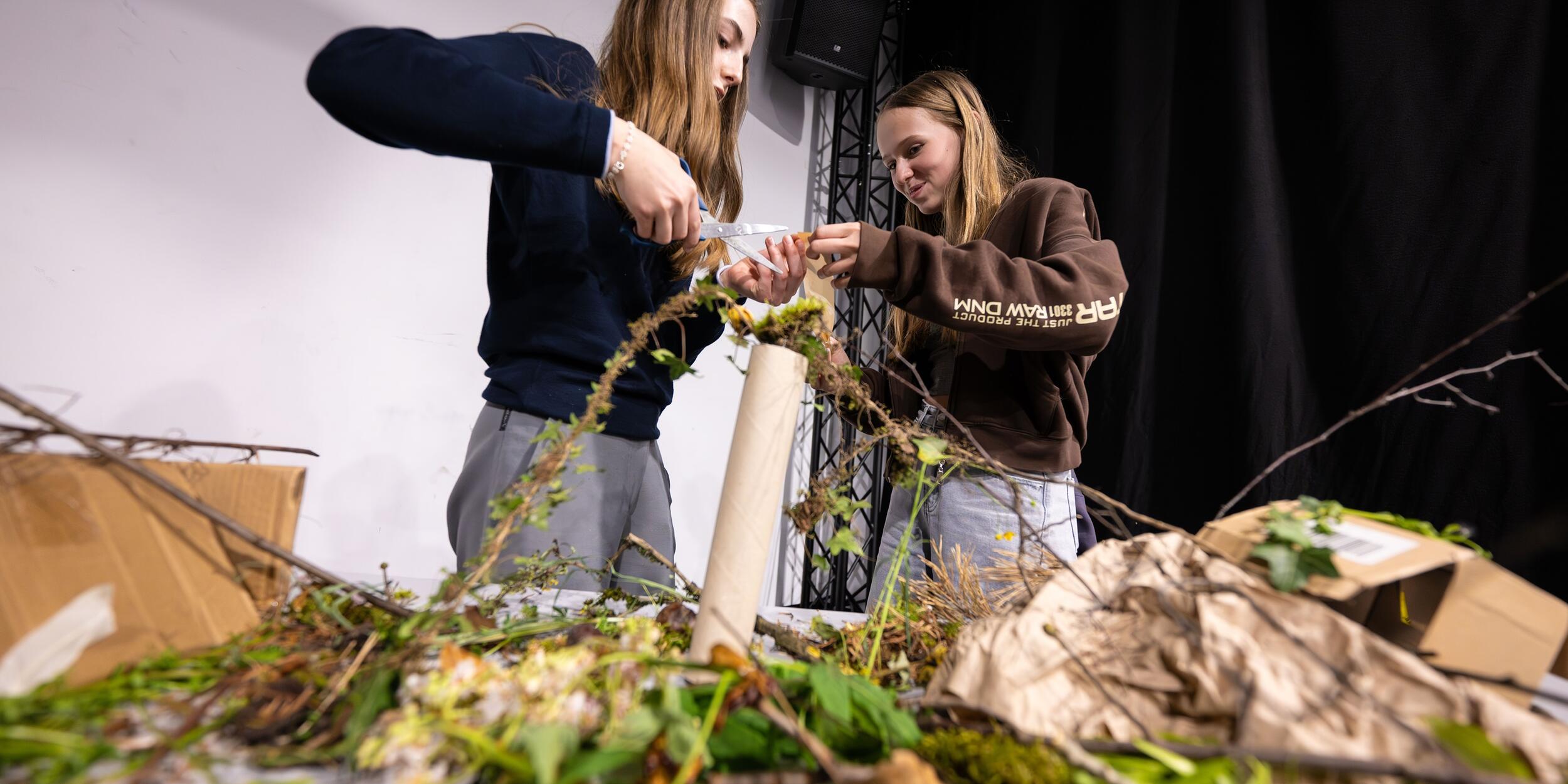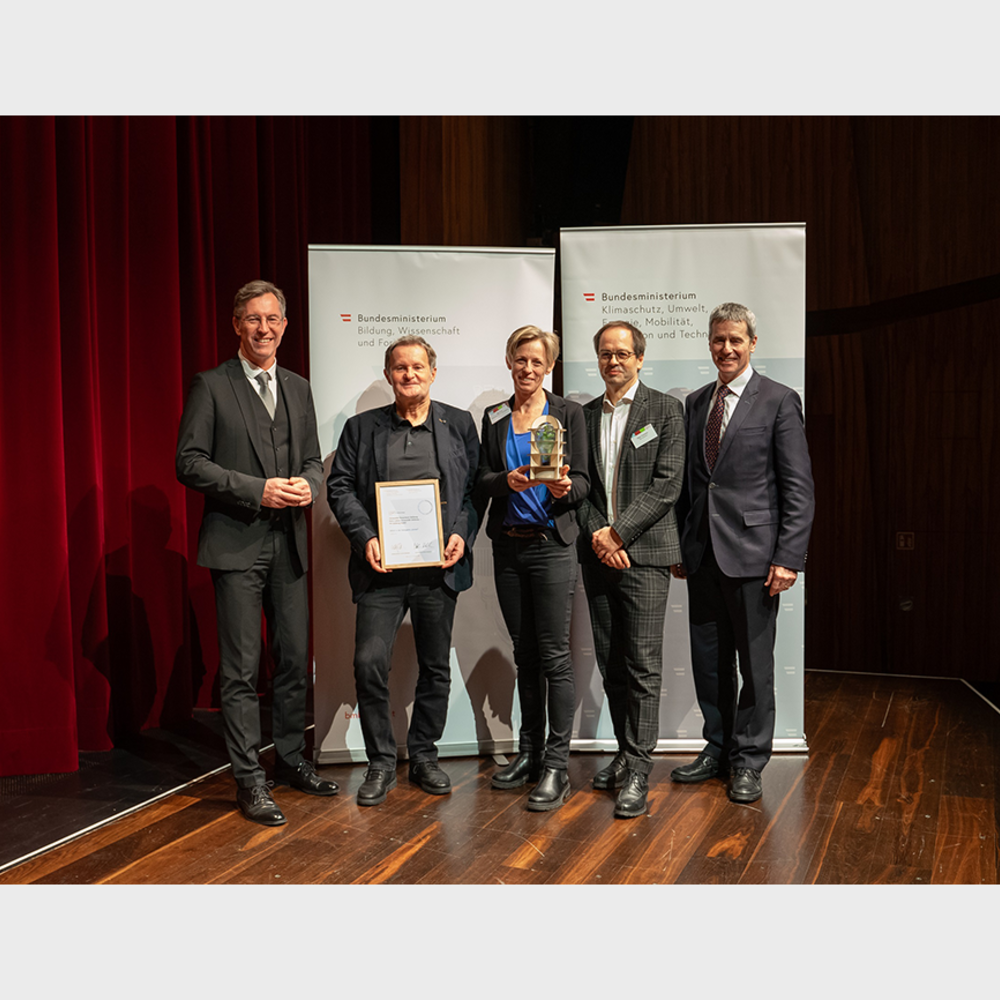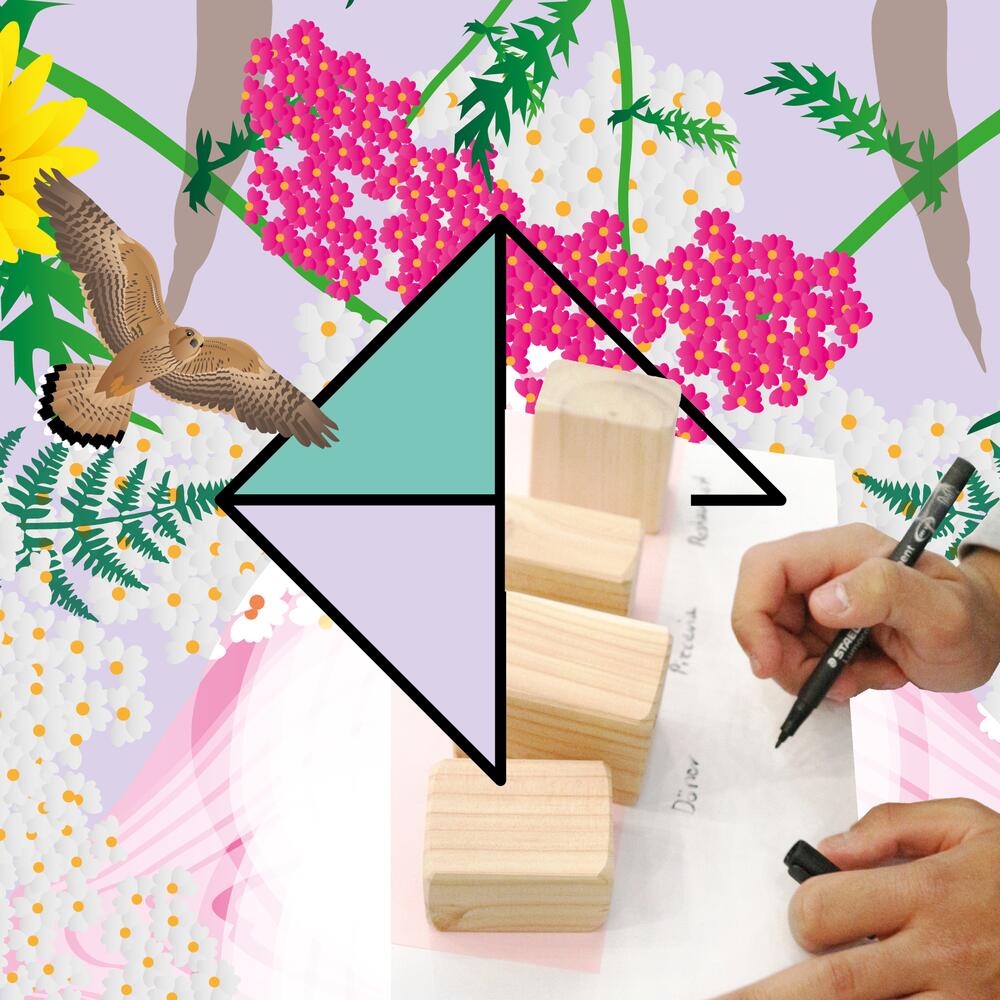Youth shapes the future

Co-CreART is a four-year project of the Mozarteum University Salzburg, which is funded by the Climate and Energy Fund and was honoured with the Sustainability Award in Gold in November 2024.
‘We want to create a place of learning that inspires young people to develop their own ideas,’ says Katharina Anzengruber, project manager of ’Co-CreART. Co-Creating Change!’. The initiative offers young people the opportunity to work creatively on solutions to the climate crisis and create their visions for a sustainable future. It is organised in cooperation with the Paris Lodron University of Salzburg and the Salzburg University of Applied Sciences and is based at the Inter-University Institute of Science and Art. The aim of the project is to set up the CreART Lab - a mobile, modular laboratory that will be available to children and young people aged between 12 and 19 as an innovative learning centre. In the first phase of the project, participatory educational formats on the topic of climate protection will be developed with a focus on sustainable construction, housing and climate-friendly mobility, which will later be incorporated into the CreART Lab. ‘It is particularly important for us to continuously involve the future target group in this development process in order to get a feel for what is important to young people and which formats appeal to them,’ says Anzengruber, Assistant Professor at the Department of Music Education at the Mozarteum University. This is done through various events and workshops, while a compulsory elective subject or A-level projects from partner schools are also linked to the project. In the second project phase, from April 2026, the CreART Lab will finally go on tour and make stops at schools, museums or in public spaces.
Co-CreART combines scientific and artistic-creative approaches to open up new perspectives and possibilities for action in relation to the climate crisis. ‘This requires not only expertise in science or technology, but also creative skills and out-of-the-box thinking,’ Anzengruber is convinced. ‘We want to open up interdisciplinary experimental spaces in which young people with different backgrounds, previous experience and needs can come together to find forward-looking solutions. This requires partners from a wide variety of fields. We are delighted to be able to utilise the experience and networks of the Inter-University Research and Art Centre.’ Co-CreART is backed by project partners from the fields of art and culture, science and technology as well as education and communication. ‘We not only cooperate with artists and scientists from the participating universities and the University of Applied Sciences, but also with schools such as the Bundesgymnasium Seekirchen and the HTL Salzburg, the Spürnasenecke, the Radiofabrik, FS1 and the Spektrum association. Support from the City and Province of Salzburg is also an important factor in the realisation of the project. We also involve students,’ says Anzengruber. Sustainability is deliberately defined broadly at Co-CreART: ‘In our view, a desirable future requires a change towards a culture of sustainability. It is important to encourage young people to play an active role in shaping this change. Young people often feel unheard and powerless in the current crisis situations. We want to show them that their perspective counts and that they can make a difference,’ says Anzengruber. Caroline Neudecker, teacher at BG Seekirchen and project team member, sees this confirmed in practice: ‘The children and young people learn how to develop innovative solutions in a team of experts from the fields of art and culture, science, technology and business. They experience how their ideas are taken seriously and actually flow into the development of the CreART Lab. Conversely, the project team and the various partners also benefit from the collaboration with the young people: Students often contribute fresh, unconventional ideas that open up new perspectives, especially in creative and artistic work. This unbiased approach can inspire and enrich scientific and technical development processes.’
‘Through its mobile and extracurricular programmes, Co-CreART not only reaches children and young people in a school context, but also initiates processes that have an impact beyond the school and the university,’ says Anzengruber. New target groups, creative resources and complementary expertise are opened up for the participating universities. An initial result of the project is the ‘From trash to treasure’ exhibition. Under the motto ‘Reusing instead of wasting resources’, it is dedicated to the topics of recycling and upcycling and was on display at the Stadt:Bibliothek Salzburg and the Maker Faire, among others. ‘By upcycling and repairing, broken objects are transformed into new favourite pieces, which protects the environment and at the same time allows these personal ‘treasures’ to be reused,’ explains Elke Zobl, Associate Professor at the Science and Art focus area, project collaborator and curator of the exhibition. Students, clients of Lebenshilfe, young people from the Spektrum association, pupils from BG Seekirchen and visitors to repair cafés show their creative approaches to recycling in the exhibition. A modular exhibition architecture was developed and built for ‘From trash to treasure’, which can be used in different ways. It can be adapted, supplemented, further developed and used for new themes. This changeability and transferability to other contexts and the associated process orientation are aspects that Co-CreART literally wants to promote in the long term: ‘One of the strengths of our project lies in creating open structures in order to explore approaches and possible courses of action and develop them further,’ emphasises Anzengruber. And failure is also part of this: ‘Especially in experiments, it is important to allow detours and to learn from mistakes. This shared learning - with children, young people and partners - is what makes the project special for me.’
(First published in the Uni-Nachrichten/Salzburger Nachrichten on 14 December 2024)

